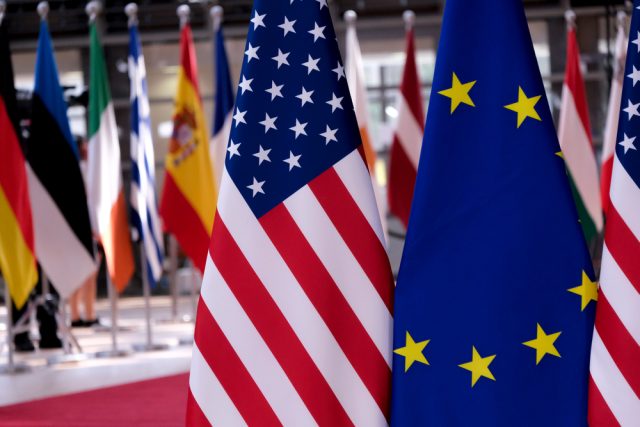
Europe cannot ignore Giorgia Meloni’s weight and positive influence on Donald Trump. If it wants to engage in fruitful dialogue with the United States and its president, it will have to rely on the Italian premier. The tycoon’s words did not go unnoticed even in Brussels. That “I like Meloni very much,” uttered by The Donald, does not lend itself to any interpretation. Four words in one sentence that underscore how the 47th occupant of the White House appreciates the Italian prime minister’s politics, resourcefulness, and determination.
Ursula Von Der Leyen got the message from Washington. To soften some of Trump’s positions, she will have to engage Meloni and the Italian government. Among the thorny issues inherent to the economic, political and trade relations between the Old Continent and the star-studded administration, possible trade tariffs occupy a prominent role. The American president, in no uncertain terms, reiterated this even during his inauguration.
Trump’s possible promised taxes scare the 27 countries of the Union. During his first public outing – albeit remotely connected – the tycoon stressed his love for Europe to the representatives of the nations attending the World Economic Forum in Davos. At the same time, he pointed his finger at the Union, complaining about unfair and disadvantageous treatment. His America First entails tariffs and lower taxes, as low as 15 percent for those who will decide to go and produce in the United States.
On the European front, however, ECB President Christine Lagarde is aware that Trump is not lying. EU Economy Commissioner Valdis Dombrovskis showed his muscles in Davos, declaring that Europe is ready to respond to the US. The tug-of-war, however, would benefit no one. On the contrary, it could put even more strain on the economies of some states. First and foremost, Germany.
Berlin is the European country with the largest trade surplus with the United States. According to U.S. Census Bureau data compiled by the Institute for International Policy Studies, Germany has reportedly maintained a trade balance of 80 billion over the past three years. Olaf Scholz and his government are already in trouble. Next February 23, when Germans are called upon to renew the Bundestag, Social Democrats, Greens and Liberal Democrats could suffer a defeat of colossal proportions. Exacerbating it, we have Trump’s threats. Should they become effective, trade tariffs could put an even greater strain on Europe’s largest economy, already scarred by recession and a less-than-stellar outlook. Berlin and even Dublin (Ireland is the Union’s second largest surplus on trade with the States) have been warned. But it is all of Europe that fears cost increases between 10 and 20 percent for goods imported overseas and a consequent economic slowdown. Germany, even, risks seeing 1 percent of its GDP evaporate in an instant.
Making the White House softer toward Europe, therefore, becomes a prerogative. Palazzo Berlaymont will have to look to Italy and Giorgia Meloni’s political influence to play an equal game with the U.S., or to at least achieve some of its goals. It is well known that Ursula Von der Leyen, on behalf of the 27 EU countries, would like to blunt Donald Trump’s intimidation by proposing a greater purchase of U.S. liquefied natural gas to meet European needs.
Purchases, meanwhile, are running again as they did at the time of the energy crisis triggered by the Russian invasion of Ukraine. Keeping the purchase price at acceptable figures becomes an EU prerogative. In this first month of the year alone, for example, shipments from the United States are about to reach record numbers. Among the reasons, in addition to a harsh winter in northern Europe, is the fact that the Old Continent is having to replace Gazprom’s Russian supplies, which have been zeroed out since January 1 following Kiev’s decision to let the transit contract on Ukrainian soil expire. According to some rumours, the estimate of liquefied natural gas imported from the States is around 6.7 million tons. This is an important volume, given that once regasified it would be equivalent to 15 billion cubic meters, the same as Russia guaranteed to Europe.
The other issue on which relations between Washington and Brussels could be further strained is related to military spending on NATO defence. Trump would like the allies to spend between 3 and 5 percent of GDP: substantial figures that would force European countries to even double their spending. On this front, too, solid arguments and the right words will be needed to mediate with the White House.
With such a scenario, full of uncertainties and central issues to be addressed on the Brussels-Washington axis, Europe will have to rely on Italy. Prime Minister Giorgia Meloni, at the moment, seems to be the only European prime minister who can boast an equal relationship with Donald Trump.



 Subscribe
Subscribe